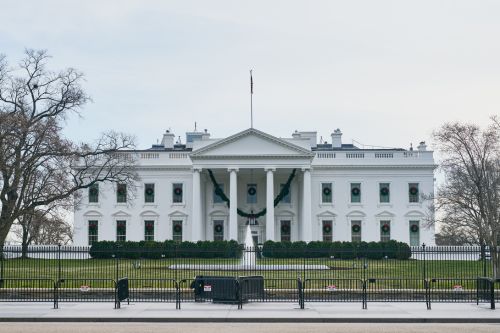Table of Contents
- An introduction to ethical hacking course in USA
- Best university for ethical hacking in the world
- Top universities in the USA to study ethical hacking
- Massachusetts Institute of Technology (MIT)
- Carnegie Mellon University
- Stanford University
- University of Maryland, College Park
- New York University Tandon School of Engineering
- University of Southern California (USC)
- Purdue University
- University of Texas at San Antonio (UTSA)
- University of Illinois at Urbana-Champaign
- University of California, Berkeley
- Overview of ethical hacking programs
- Key takeaways
- FAQs
An introduction to ethical hacking course in USA
In today’s digital age, the demand for cybersecurity professionals has skyrocketed. One of the most sought-after roles in this field is that of an ethical hacker. Ethical hackers, also known as white hat hackers, use their skills to find vulnerabilities in computer systems and networks and report them to the owners to improve security. If you’re interested in pursuing a career in ethical hacking, choosing the right university is crucial. In this article, we’ll discuss the top universities in the USA to study Ethical Hacking.
Best university for ethical hacking in the world
Before we dive into the list of top universities, let’s first discuss the criteria we used to select them. When choosing the best universities in the USA for ethical hacking, we looked at several factors, including:
Accreditation: The university should be accredited by a reputable agency.
Curriculum: The university should offer a comprehensive curriculum that covers all aspects of ethical hacking, including network security, vulnerability analysis, and penetration testing.
Faculty and industry experts: The faculty members should have relevant experience in the field of ethical hacking. The university should also have partnerships with industry experts and organizations.
Hands-on experience and resources: The university should provide students with access to tools, software, and hardware for practicing ethical hacking techniques.
Networking opportunities: The university should offer networking opportunities for students to connect with industry professionals and other students.
Top universities in the USA to study ethical hacking

Massachusetts Institute of Technology (MIT)
MIT is a renowned university that offers several cybersecurity programs, including a Master’s in Cybersecurity and a Professional Certificate in Cybersecurity. The university’s cybersecurity program covers various topics such as network security, cryptography, and ethical hacking. The curriculum includes hands-on experience with security tools and techniques.
Fees: $59,750/Year
Course Duration: 2 years
Carnegie Mellon University
Carnegie Mellon University is a well-known university that offers a Master’s in Information Security Policy and Management. The program covers a wide range of topics, including ethical hacking, network security, and digital forensics. The university has partnerships with top companies in the cybersecurity industry, providing students with access to real-world experience.
Fees: $54,700 /Year
Course Duration: 2 years
Stanford University
Stanford University is another well-known university that offers a Master’s in Cybersecurity. The program covers a wide range of topics, including ethical hacking, cryptography, and cyber defense. The curriculum includes hands-on experience with security tools and techniques.
Fees: $38,160 /Year
Course Duration: 2 years
University of Maryland, College Park

The University of Maryland, College Park, offers a Master’s in Cybersecurity and it is one of the best colleges for ethical hacking in the world. The program covers several cybersecurity topics, including ethical hacking, digital forensics, and cyber law. The university has a Cybersecurity Center that provides students with access to resources and tools for practicing ethical hacking techniques.
Fees: $25,270/Year
Course Duration: 2 years
New York University Tandon School of Engineering
The New York University Tandon School of Engineering offers several cybersecurity programs, including a Master’s in Cybersecurity and a Professional Certificate in Cybersecurity. The curriculum covers a wide range of topics, including ethical hacking, network security, and digital forensics. The university has partnerships with top companies in the cybersecurity industry, providing students with access to real-world experience.
Fees: $70,050 /Year
Course Duration: 2 years
University of Southern California (USC)
The University of Southern California (USC) offers several cybersecurity programs, including a Master’s in Cybersecurity and a Graduate Certificate in Cybersecurity. The curriculum covers a wide range of topics, including ethical hacking, network security, and cryptography. The university has partnerships with top companies in the cybersecurity industry, providing students with access to real-world experience.
Fees: $22,320 /Year
Course Duration: 2 years
Purdue University
Purdue University offers several cybersecurity programs, including a Master’s in Cybersecurity and a Graduate Certificate in Cybersecurity. The program covers several cybersecurity topics, including ethical hacking, digital forensics, and network security. The university has partnerships with top companies in the cybersecurity industry, providing students with access to real-world experience and research opportunities.
Fees: $18,802 /Year
Course Duration: 2 years
University of Texas at San Antonio (UTSA)
The University of Texas at San Antonio (UTSA) offers a Master’s in Cybersecurity. The program covers several cybersecurity topics, including ethical hacking, network security, and digital forensics. The university has partnerships with top companies in the cybersecurity industry, providing students with access to real-world experience. UTSA also hosts the National Security Collaboration Center, which provides research opportunities for students.
Fees: $12,860 /Year
Course Duration: 2 years
University of Illinois at Urbana-Champaign
The University of Illinois at Urbana-Champaign offers a Master’s in Computer Science with a focus on cybersecurity. The program covers several cybersecurity topics, including ethical hacking, cryptography, and network security. The university has partnerships with top companies in the cybersecurity industry, providing students with access to real-world experience.
Fees: $13,314
Course Duration: 2 years
University of California, Berkeley
The University of California, Berkeley, offers a Master’s in Cybersecurity. The program covers several cybersecurity topics, including ethical hacking, digital forensics, and network security. The university has partnerships with top companies in the cybersecurity industry, providing students with access to real-world experience. UC Berkeley also hosts the Center for Long-Term Cybersecurity, which provides research opportunities for students.
Fees: $27,366 /Year
Course Duration: 2 years
Overview of ethical hacking programs
Now that we’ve discussed the top universities for studying ethical hacking let’s take a closer look at the programs they offer.
The programs offered by the universities vary in length, requirements, and opportunities for certifications. For example, MIT’s Professional Certificate in Cybersecurity takes six months to complete and provides students with a comprehensive understanding of cybersecurity and ethical hacking. On the other hand, Carnegie Mellon’s Master’s in Information Security Policy and Management takes 16 months to complete and includes a capstone project.
Many of the programs offered by the universities also provide students with opportunities to obtain certifications. For example, NYU Tandon School of Engineering’s Master’s in Cybersecurity includes coursework that prepares students for certifications such as Certified Ethical Hacker (CEH) and Certified Information Systems Security Professional (CISSP).
Experiential learning opportunities are also an essential part of the programs offered by the universities. Many of the programs include hands-on experience with security tools and techniques, as well as research opportunities with industry experts.
Read more: Best Study Abroad Consultants in Mumbai
Key takeaways
- In conclusion, choosing the right university is crucial for studying ethical hacking.
- The top universities in USA to study Ethical hacking offer comprehensive curriculums, experienced faculty members and industry experts, hands-on experience and resources, and networking opportunities for students.
- By obtaining a degree or certification from one of these universities, you can prepare yourself for a successful career in ethical hacking.
Did you find this blog helpful? Do share your perspectives about the blog in the comments below. Please get in touch with us by clicking here for more information on Top universities in USA to study Ethical Hacking. We would be happy to assist you with your queries.
Liked this blog? Read next: Your handy guide to the University of East London’s undergraduate courses
FAQs
Q1. What degree programs are offered by the top universities for studying ethical hacking?
Answer: The top universities offer a range of degree programs, including Bachelor’s and Master’s degrees in Cybersecurity, Computer Science, and Information Security.
Q2: What kind of career opportunities can I expect after studying ethical hacking?
Answer: Studying ethical hacking can lead to a variety of career opportunities, including roles such as Penetration Tester, Information Security Analyst, and Security Consultant. These roles are in high demand and offer competitive salaries.
Q3. Are there any certifications I can obtain while studying ethical hacking at these universities?
Answer: Yes, many of the universities offer certifications as part of their programs. For example, NYU Tandon School of Engineering’s Master’s in Cybersecurity includes coursework that prepares students for certifications such as Certified Ethical Hacker (CEH) and Certified Information Systems Security Professional (CISSP).






